Blog Post
Why Traditionalism Matters: An Interview with Wrath of Gnon
By Jonathon Van Maren
Anyone mildly interested in traditionalism—be it beautiful old architecture, the preservation of fading cultures, magnificent literature, or simply an instinctive aversion to the ugliness of modernity—has probably heard of the “Wrath of Gnon,” a mysterious Twitter user who seems to spend a lot of time unleashing beauty onto social media. He—I know he is a he because in an email exchange, he referred to a promise he made to “Mrs. Wrath” to remain anonymous—combines beautiful artwork with thought-provoking quotes, all designed to make the viewer consider his worldview: His Twitter bio simply reads “Traditionalist.”
The Wrath of Gnon—“Gnon” means “Nature’s God”—has attracted a lot of attention in traditionalist circles. In addition to his “memes”—the word seems too trivial and modern to be applied to the images he produces—he also tweets out pages from authors such as British philosopher Sir Roger Scruton (one of the only philosophers he enjoys reading) and architectural historians, as well as juxtapositions of modern buildings of glass and steel up against winding cobblestone pathways to little cottages, soaring castles, and ancient city centres. His more than 20,000 followers include the National Review’s Michael Dougherty and Ian Tuttle, the Catholic Herald’s Dan Hitchens (son of Peter Hitchens), the Wall Street Journal’s Micah Meadowcroft, evolutionary psychologist Geoffrey Miller, the Daily Beast’s Rick Wilson, the BBC’s David Silito, and Jason Kenney, the head of Alberta’s United Conservative Party.
Wrath (as he signed off in his emails to me) was kind enough, last year, to agree to an interview via email with me. He noted that he does not speak English regularly in his daily life, but it was hard to tell from our exchange. He is an avowed monarchist, and a traditionalist who is so traditional many North American readers may find his ideas jarring—although, as he points out consistently, these ideas were boringly normal a generation or two ago. His eloquence reminds me of the writing of Anthony Esolen, who somehow has the ability to make even a Facebook post read like the observation of a literature-steeped sage. His insights were fascinating, and I’m grateful he took the time to answer my questions.
Traditionalism, while attracting more attention, is still promoted by a relative few. What was your intellectual journey like?
Since childhood I have had an interest in the folksy, the vernacular, the local, but my intellect was stymied by the usual nonsense they teach in high schools and grad schools all over the world. Not only had they managed to cut whole generations from their roots, turned us into vast semi-nomadic herds of idle consumers, but they bathed our minds with sweet-smelling false ideologies and dogmas, where obviously destructive ideas like…the blank slate theory, multiculturalism, and feminism, destroyed not only individual lives but threatened the whole of civilization. In school we treated Rembrandt with the same respect as Duchamp, and I rebelled against that because it was so obviously a ridiculous comparison. I painted in oil myself, and when I got home from art class and wrestled with the same materials as those of the old masters I knew that all of “modern art” was outrageously false.
Likewise in architecture, the house I lived in had parts built in the 13th century, and those were the best parts of the house. I simply could not believe our lying teachers who claimed that our advanced culture and advance architecture was better for the sole reason that it was the most modern. As if last Thursday was better than last Tuesday just because it is more recent. The same thing happened in sports: our female fencing teachers forbade us to fence with sabers, because they were too painful, even though the epees we were given could be plenty painful as well! And at the stables, the few boys who signed up for horse-riding classes quickly grew tired of the female instructor’s constant fear of fun (as we saw it: galloping, racing, jumping, etc.)
As a student I read the usual, Aristotle, Plato, etc. but also the romantics: Schiller, Goethe, Tolstoy. We could not opt out of modernist “lit” and postmodern philosophy though, which put me off books for a long time. For years after graduating I only read technical manuals and it was not until recently that I discovered [men like] G.K. Chesterton. Philosophy was made so distasteful to me that I still struggle to read Sir Roger Scruton, and he is one of the finest philosophers of the anglophone world, with several (what ought to be canonical) defenses of conservatism and beauty.
The decay—if not collapse—of the West is the topic of many books over the past several years. This year, Rod Dreher’s Benedict Option and Anthony Esolen’s Out of the Ashes examined how to respond to the receding Sea of Faith and create wholesome communities once again. What do you believe the way forward is?
The topic is immortal. Our civilization, born as it is out of the decaying societies of the ancient Greece and the collapse of the Roman world, has always had these terrifying examples firmly within the periphery of vision. A major theme in medieval and renaissance art and literature, when death was nearer to us than in today’s sanitized world, was the memento mori, the De Tribus Regibus Mortuis, the Decamarone (which in itself is one of the great works of art on the Exit), etc. A counterpoint to the morbidity of civilization was the joyful rebirth, the spring. As the Renaissance showed, it was possible for man by the sheer strength of will to rejuvenate himself as well as his community. This optimism dominated until the Great War, when three empires were destroyed over a handful of years, and the remaining two were dismantled just a generation later. The great master of the genre is of course Spengler, whose predictions have been remarkably true, even to this day. There are even progressive versions of the theme (The Decay of the West), like the Club of Rome, although they are usually completely and cynically materialistic.
The idea of an exit (like Dreher’s Benedict Option illustrates—the title itself unfortunately being too powerful for the idea it wants to present) is nothing new. St. Jerome in the 4th century A.D. called for a retreat from the wicked and ultimately dying cities, and the chaos of the wars in the 6th century led to a surge of men who found their exit in the refuge of the monastic orders (the original Little Platoons, way before Burke), like St Benedict, followed by many charismatic holy men and women from then on. The monasteries, calling as they did the most devoted, were also a blessing for the embattled lay communities of Europe. They served as safe havens, complete with walls and provisions, and they provided unquestioning charity for all Christians, beacons of light and bastions of learning.
These early monastics are not bad role models: they contain all the seeds of civilization: Order, Hierarchy, Faith. They offer Charity, Love, Safety, Learning, Beauty, Culture, and they do so being self-sustainable, a concept presently in vogue that is seldom understood: to be self-sustainable is not about growing your own potatoes and generating your own electricity, it is to provide a shared framework for belief and beauty: “Make your communities and towns lovely and lovable, for without love, who will they inspire to fight for them?” Unless you have that shared goal, not all the solar panels in the world will save you.
I believe that we are heading for a collapse, and I also believe that the survivors of this collapse will be the most homogenous communities, the strictest, the most pious. The first casualty of the collapse will be individualism. There is safety in numbers, and history provides us with many examples of survivors, groups and societies that wintered the collapse. Salvation is communal: “Remember the old saying, ‘The only thing we can do alone is go to hell.’” If we only have the sense to lay down deep roots, to seek safety in each other, then we have a fighting chance, and in this, faith is key.
How do you implement traditionalism in your own life?
Traditionalism as an intellectual or practical activity is surprisingly easy: I encourage my family to take part in traditional activities, like crafts, arts, religion and ceremonies, festivals and music. But equally important is to know what to give up!—this is where most people falter or fail: it is hard to deny yourself something everyone around you takes for granted.
Over the years I have come to realize that almost everything my grandparents told me was correct, and almost everything my teachers told me were lies.
What would your advice be for those who want to live in more traditionalist ways, but find themselves caught in our hectic, post-modern culture?
This ties in with the previous question, but the two most important things you can do is to settle down, and to have children. Turn off the media, reduce the noise, turn of the lights. Sleep early, get up early, eat what is in season, work with your hands, your mind, your body.
One of my favorite stories of this kind is the local apiarist (beekeeper) in my neighborhood. He told me that the first seven years of him keeping bees he never had more than a couple of jars for himself. Even though he had gotten into it with the idea of selling honey, he found that he neighbors were so hostile to the idea of having bees around that he had to walk around the neighborhood after every harvest and hand out jars of honey. Hundreds of kilos every year was given away. Over time the neighbors figured out that the bees were not dangerous and that this man was not abusing their neighborhood but actually making it a better place. More people started keeping flowers in their gardens and eventually the man could start selling his produce rather than giving it away.
This story illustrates a point that everyone from your grandmother to Tahitian islanders, to the hardcore Neo-reactionary thinkers can agree on: be worthy. To be part of something you must first be of use to it. A community is only as strong as the effort put into it by its members. You must have something to offer. This is as true in urban beekeeping as in modern courtship.
Learn a skill, master a craft, teach something: learn, create, pass on.
Many of your followers engage with you on social media. What is attracting people to traditionalism and your work?
I have this idea—like so many of my ideas, it used to be common sense—that beauty is essentially truth, and truth is essentially beautiful. Human history is varied enough that there are real life—once existing or still existing—examples of the ideal form of every human virtue. What I do is present them in an easily sharable form. I am suspicious of tracts and I detest manifestos and ideologies, I would rather show than tell: why does monogamy work? Why is personal charity superior to societal welfare? Why are picturesque crooked streets preferable to modern city streets? I try to focus on the beautiful and avoid pointing out errors and mistakes (but it is hard to stop oneself sometimes). Modern individualism has fostered a type of person who hates nothing more than being proved wrong or spoken down to. I believe that if I just gently remind people of the beauty that has been taken from their lives, that they will come to similar conclusions as me, on their own.
Which mainstream ideas pose the greatest threat to traditionalism?
Global capitalism, of course. Individual materialism, obviously. But more and more a sort of Laissez-Faire Nihilism, the one exemplified by clever young people “Who wants to have children in a world going to hell?”, and interestingly, even though they call themselves Progressives and outwardly profess undying faith in humanity (despite all the problems they cause and the distresses they must be able to see in their own communities), the main culprit of this are the Globalists themselves. There are no more rabid doom-mongers than the “save the rain forest” crowd. I forgot who said it, but “forget the war on terrorism, the most important war of our time is the war between the sexes, a war that we are all losing.” In a way I agree, in the way that the hidden enemy is always the one able to inflict the most damage: Feminism is the greatest danger to our civilization. By twisting facts, by a concentrated propaganda effort, the image has been planted into the minds of women that history was sexist, that the church was anti-women and that women can be…better than men. In reality it is the couple, the man and the woman together, who make up the basic bond of humanity. The day we finally give up on this idea of love, is the day our civilization is doomed forever. “Love is reactionary”, and “Progressivism is centrifugal” (as I often say).
You’ve said you hate politics. I hate politics, as well. But how do traditionalists engage with politics when it is the growth of government that intrudes into every part of life and seeks to eliminate our ability to live traditionally?
Nothing good will come from engaging with politics. There is no way you can play their game and not suffer for it. What traditionalists should do however is to refuse to play the Left’s game (and all of politics is leftist by definition) of political correctness. The Left is constantly trying to get us to denounce, or to deny, little by little to chip away at our pride and moral stand by forcing us to make (consciously or unconsciously) “unqualified reservations”, in feeble attempts to stave off criticism. This has to stop. Traditionalists can also point out to politicians when they are doing the right thing however, and by being generally upright in our chosen communities. In this way Traditionalists make good Doctors, Teachers, NCOs, Priests, in all places where there is authority without politics.
However, the Progressives are actively working to eliminate all pockets of resistance to the political world order, even the professions I noted above are no longer safe havens of order. In that case, as the family is the smallest unit of society, it is to the family that we should retreat, and from that strong point reach out to other families, friends and allies, to forge real friendships and networks, to foster love and beauty, these are today the most radically revolutionary activities you can possibly engage in.
If people want to explore traditionalism, where should they start?
As an intellectual discipline, there has never been a better time for traditionalism than now. Almost all the material we need is available online for free. Traditionalism is one of those rare -isms without any established canon or hierarchy of thinkers. The main point is to read old books. Not only are they usually free, they are also less infected by the modern mind virus that forces you to have to read everything critically, questioning. With old books you should read them with an open mind, trust that author, and to submit, at least while reading, to the notion that the author was correct. My memes could serve as useful starting points in terms of authors and ideas, but in the end it is up to everyone to heath their own path and to not be afraid to be picky readers. No one has time to read all of everything. But traditionalism, like all things, is best experienced in real life and with good friends.
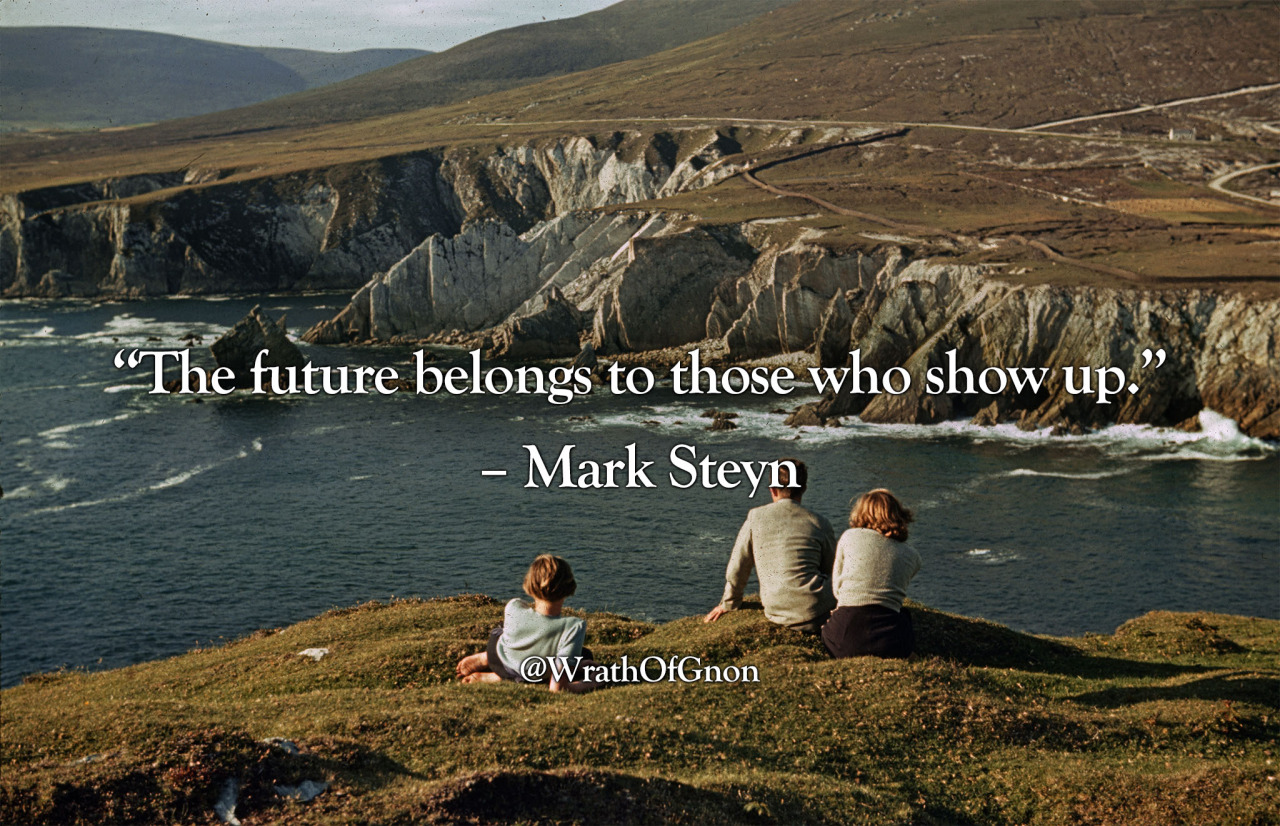
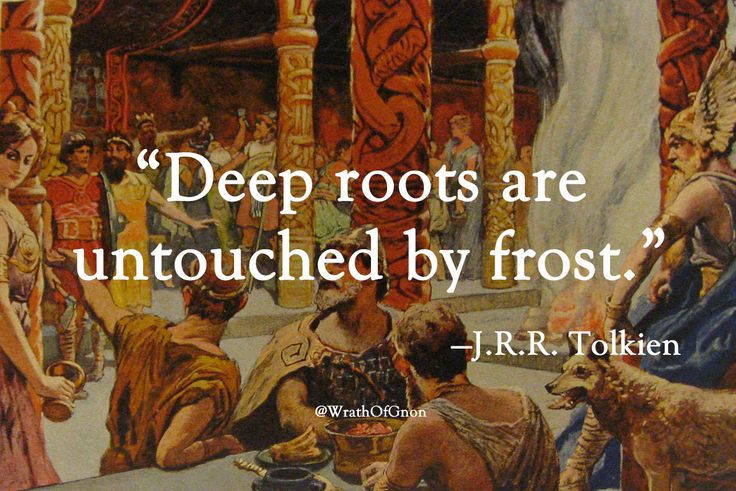
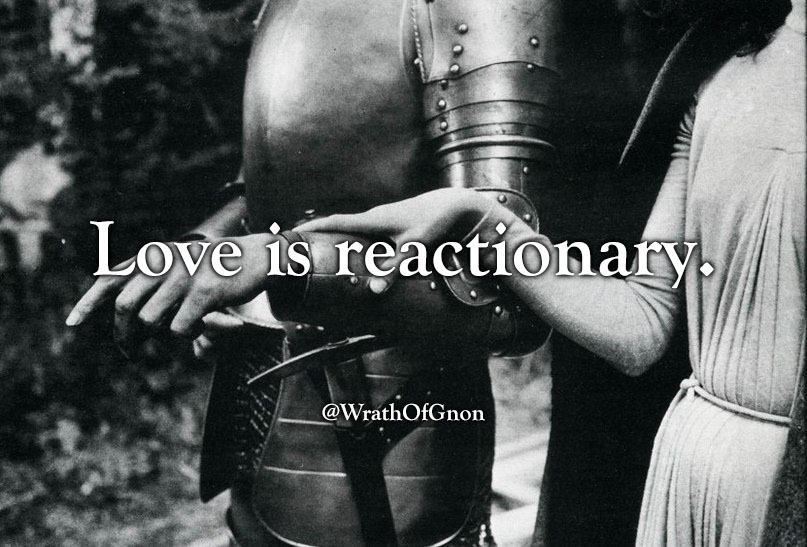
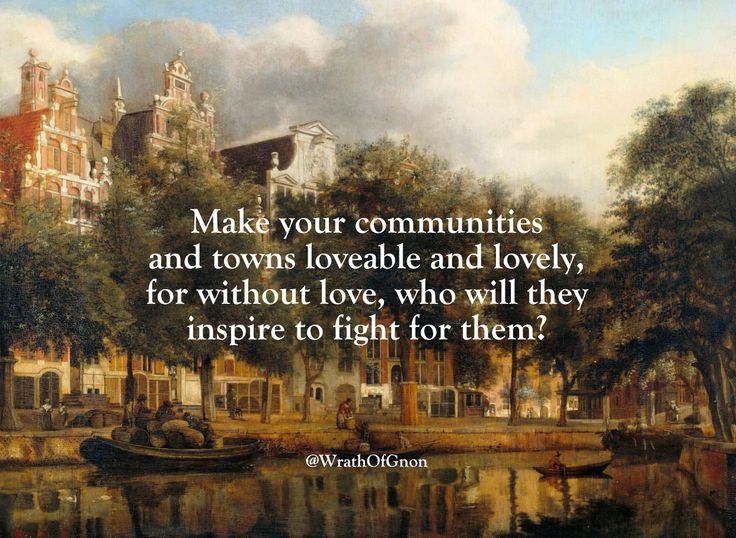


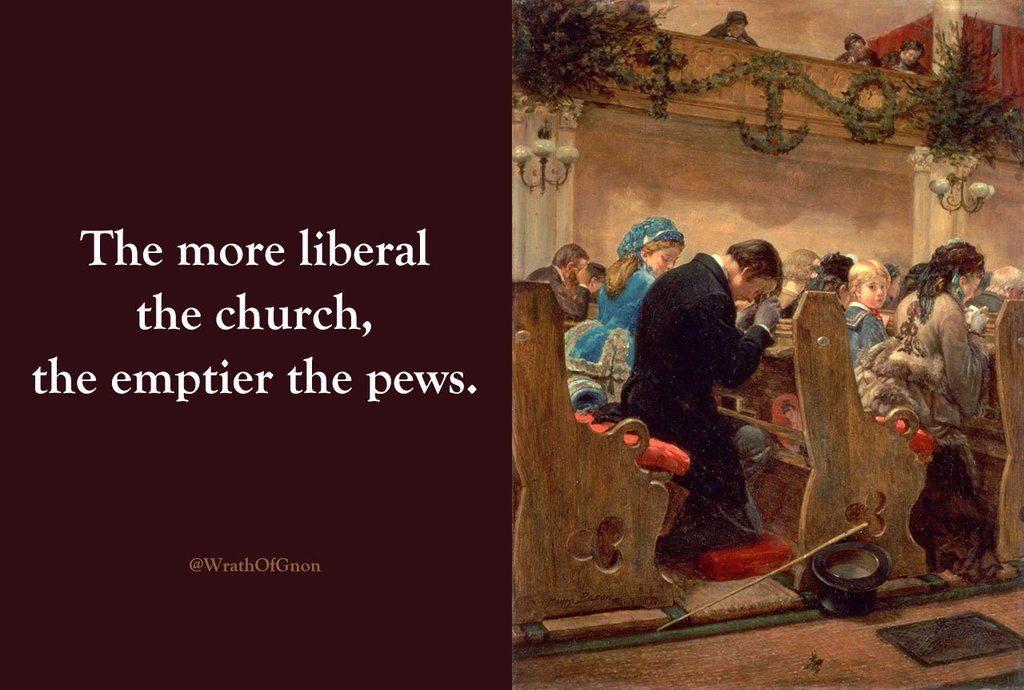






I appreciate you working to get this interview.
Great interview.
Fact check:
“The Wrath of Gnon—“Gnon” means “Nature’s God”—has attracted a lot of attention in traditionalist circles. ”
“Prompted by Surviving Babel, The Arbiter of the Universe asks: “Who speaks for reaction?”
Nick B. Steves replies: “Nature… or Nature’s God… or both.” (Jim succinctly comments.)
“Nature or Nature’s God” is an expression of special excellence, extracted (with subtle modification) from America’s Declaration of Independence. For Steves, it is something of a mantra, because it enables important things to be said in contexts where, otherwise, an interminable argument would first need to be concluded. Primarily, and strategically, it permits a consensual acceptance of Natural Law, unobstructed by theological controversy. Agreement that Reality Rules need not be delayed until religious difference is resolved (and avoidance of delay, positively apprehended, is propulsion).”
http://www.xenosystems.net/the-cult-of-gnon/
All the best.
Well done Jon. One of your best. I’m going to read this over a few more times.
Brilliant!
Must be read by all men of a family.
Shines like the brightest lighthouse in the worst of gales.
“If you Give people light, they will find their own way.” ~Durante degli Alighieri
Hi Jonathan,
To be honest, I don’t think that giving a platform to WrathOfGnon was a good idea. Mr Gnon is apparently a disciple of the notorious Italian occultist and Nazi sympathiser Julius Evola:
https://twitter.com/wrathofgnon/status/733160072222642177
https://twitter.com/wrathofgnon/status/801408597976416257?lang=en
https://twitter.com/wrathofgnon/status/830054730122485761?lang=en
Evola was viscerally anti-Christian, describing it as the “root of the evil that has corrupted the West”. I doubt you were aware of this, Jonathan, but needed to point this out to help you avoid unwanted attention.
That’d be strange. He’s a very conservative Catholic, from what I understand. My primary disagreements with him are some ugly things he said about Luther and other key figures from my tradition.
How is it that a person becomes a “disciple” of someone merely because they agree with a handful of opinions (as far as I can tell)? Desiring to marginalize a person because of a tangential connection to another person who may have some disagreeable views is a sad, scorched-earth practice that will eventually lead to the marginalization of everyone but those who hold power.
“image has been planted into the minds of women that history was sexist, that the church was anti-women ”
Many conservative men believe in this too, they live up to feminist slander. For as long as such men are not called out (and they’re not, they’re quite comfortable in traditionalist circles), relationship between the genders will not improve overall. The right will just be on the other side of this “war that we are all losing” as Wrath of Gnon puts it.
According to the interviewee’s own description of right and left, those “conservative men” you evoke wouldn’t be on “the right,” they would be on “the left.”
>In reality it is the couple, the man and the woman together, who make up the basic bond of humanity.
Why did you stop reading and start commenting exactly before this sentence? This version of criticism, where one quotes and criticizes their own misconception of a few words, without reading any of the larger context surrounding those few words, is itself one of the clearest failures of scale in modern life.
Rod Dreher’s Benedict Option?
Rod is a hack. Next